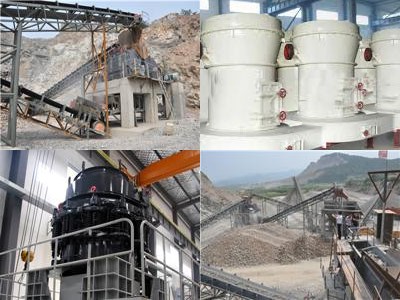Don't miss our holiday offer - 30% OFF!
Understanding The Mechanics Of Material Crushing: An In-Depth Look At Jaw Crusher Functionality

In the realm of material crushing, understanding the intricacies of how machinery operates is crucial for maximizing efficiency and ensuring the longevity of the equipment. At Zenith Company, we pride ourselves on providing top-tier crushers, mills, and other heavy industrial equipment designed to meet the diverse needs of our clients. This article delves into the world of jaw crushers, offering an in-depth look at their functionality, design variations, and best practices for maintenance and safety. Whether you’re involved in mining, construction, or recycling, our insights into jaw crusher technology will help you optimize your operations.
Introduction to Jaw Crushers: The Basics
Jaw crushers are fundamental in the material crushing process, serving as the primary means for reducing large rocks and materials into smaller, manageable sizes. Utilized across various industries including mining, construction, and recycling, these machines play a critical role in preparing materials for further processing. At their core, jaw crushers consist of two plates: one stationary and one that moves. These components work together to crush material through compressive forces, a method proven to be both effective and efficient.
The role of jaw crushers extends beyond simple size reduction. In industries where material purity and size are critical, jaw crushers ensure that materials meet the necessary specifications for further use. This versatility makes them indispensable in many sectors.
Key components of a jaw crusher include the fixed and moving jaw, the toggle plate, and the adjustment mechanism for setting the size of the crushed output. Zenith Company offers a range of jaw crushers designed to meet these needs, ensuring high performance across a variety of applications.
The Crushing Process Explained
Material is introduced into a jaw crusher through a top feed opening, where it is compressed between the moving jaw and the stationary jaw. This compression not only reduces the size of the material but also breaks it down into a more uniform shape, making it easier to handle and process downstream.
The mechanics of crushing involve a combination of compression and shear forces, which efficiently reduce materials to the desired size. The process can be adjusted and controlled through the crusher’s design and settings, allowing for optimization based on the specific needs of the operation.
Different stages in the crushing process, including primary, secondary, and sometimes tertiary crushing, are necessary to achieve the desired end product. Zenith’s jaw crushers are engineered to deliver optimal performance throughout these stages, ensuring high throughput and efficiency.
Technical Specifications and Performance Metrics
Understanding the technical specifications of a jaw crusher is essential for selecting the right equipment for your needs. Size and capacity are among the most critical factors, determining the volume of material that can be processed within a given timeframe.
The importance of feed size and discharge settings cannot be overstated. These parameters directly influence the crusher’s efficiency and the quality of the final product. Zenith’s jaw crushers offer adjustable settings to accommodate a wide range of feed sizes and production requirements.
Performance metrics such as efficiency and throughput are key indicators of a crusher’s performance. Zenith Company’s jaw crushers are designed to maximize these metrics, ensuring that our clients achieve the best possible results in their material crushing operations.
Jaw Crusher Design Variations and Their Impact
The choice between single toggle and double toggle jaw crushers depends on the specific requirements of the crushing operation. Single toggle crushers are ideal for use in softer rock applications, while double toggle crushers are better suited for harder materials.
Design variations in jaw crushers can significantly impact material crushing efficiency. Zenith Company’s range of jaw crushers includes various designs that cater to different needs, ensuring that clients can find the perfect match for their operational requirements.
Case studies demonstrate the effectiveness of different jaw crusher designs in various settings. Zenith’s expertise in crusher technology ensures that our clients benefit from the most advanced and efficient solutions available.
Maintenance, Safety, and Operational Best Practices
Routine maintenance is crucial for ensuring the longevity and reliability of jaw crushers. Zenith Company provides comprehensive support and guidance for maintaining our equipment, ensuring that it operates at peak efficiency.
Safety protocols are essential for preventing accidents and injuries. Our jaw crushers are designed with safety in mind, incorporating features that minimize risks to operators and maintenance personnel.
Optimizing jaw crusher operation involves regular maintenance, adherence to safety guidelines, and the selection of the right equipment for the job. Zenith Company’s range of jaw crushers and support services ensure that our clients can achieve the best possible outcomes in their material crushing operations.
In conclusion, the functionality, design, and maintenance of jaw crushers are pivotal aspects of material crushing operations. Understanding these elements allows for improved efficiency, safety, and performance. Zenith Company remains at the forefront of this technology, offering a comprehensive selection of jaw crushers and support services designed to meet the diverse needs of our clients. Whether you’re looking to optimize your current operations or are in the market for new equipment, our expertise and product range ensure that you have access to the best solutions in the industry.